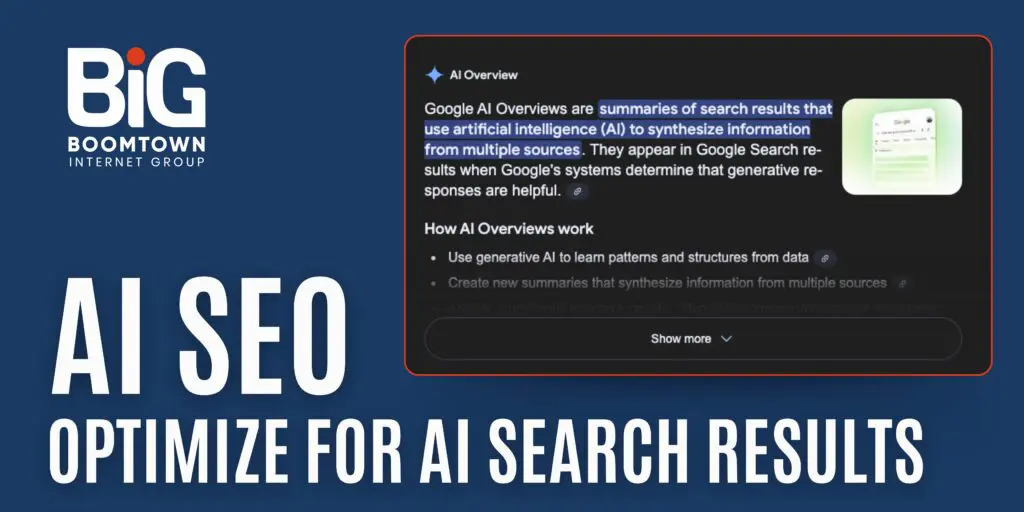The landscape of search engine optimization (SEO) is undergoing a dramatic transformation, driven by the rapid advancement of artificial intelligence (AI). Search engines have expanded upon the LLM algorithms and are no longer solely reliant on keywords; they now leverage AI to understand user intent, provide instant answers, and deliver highly personalized search experiences. This shift has implications for businesses, requiring a fundamental rethinking of SEO strategies to include AI Optimization.
Table of Contents
- Understanding The Dominance of AI Overviews
- Latest AI Developments in Google Search: AI Mode
- Zero-Click Searches and the Changing User Journey
- Shifting Focus from Traffic to Engagement
- Adapting Your SEO Strategy for the AI Era
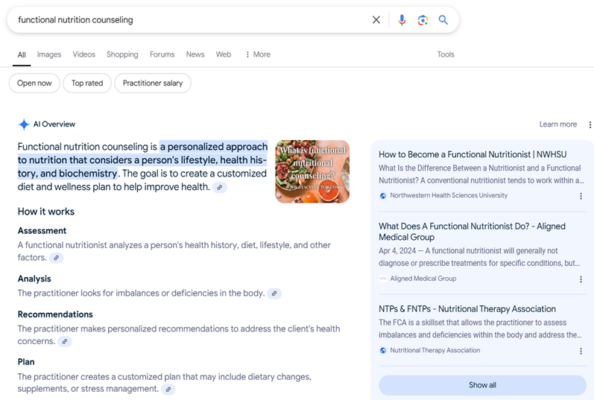
Understanding The Dominance of AI Overviews
AI Overviews are rapidly gaining prominence in search results. These concise summaries, often presented in a prominent box above organic results, provide users with immediate answers to their queries, reducing the need to click through to individual websites. While convenient for users, this shift presents a challenge for businesses: decreased organic click-through rates (CTRs).
Latest AI Developments in Google Search: AI Mode
Google is expanding its AI features by testing a new experimental “AI Mode” alongside an upgraded version of AI Overviews, powered by Gemini 2.0. The new AI Mode is a supercharged version of AI Overviews that allows users to ask questions and receive AI-powered responses with follow-up questions and helpful web links. AI Mode is particularly helpful for questions that need further exploration, comparisons, and reasoning. It brings together advanced model capabilities with Google’s best-in-class information systems, and it’s built right into Search. AI Overviews will begin appearing more frequently, covering areas like mathematics and coding, and will be accessible to more users.
Zero-Click Searches and the Changing User Journey
AI is dramatically changing user behavior. We’re witnessing a significant increase in “zero-click searches,” where users find the information they need directly within the search results page, often without clicking through to websites. This means users are less likely to scroll down the search engine results page (SERP) and explore organic results.
“Functional Nutritionist Counseling.” In the past, they might have clicked through to several websites to compare services, locations, doctors, and treatment options. However, with the rise of AI, search engines can now provide a direct answer: “Functional Nutritionist Counseling: How It Works, How To Become A Functional Nutritionist” often accompanied by star ratings, photos, and even online appointment booking options. This eliminates the need for the user to click through to individual websites.
This shift in user behavior has significant implications for businesses:
- Reduced Organic Traffic: As more users find the information they need directly within search results, website traffic from organic search can decline.
- Increased Competition for Visibility: With less user attention on organic results, businesses must work harder to stand out and capture user attention within the limited space available.
- The Importance of Featured Snippets: Securing a featured snippet can significantly increase visibility and drive traffic, even in a zero-click search environment.
Shifting Focus from Traffic to Engagement
In this new era of AI-driven search, the traditional focus on website traffic needs to shift towards engagement metrics. Key performance indicators (KPIs) should now include:
- Time on Page: How long users spend on your website.
- Bounce Rate: The percentage of users who leave your website after viewing only one page.
- Scroll Depth: How far down the page users scroll before leaving.
- Conversion Rates: The percentage of website visitors who complete a desired action (e.g., making a purchase, or filling out a form).
By focusing on these engagement metrics, you can demonstrate the value of your website to search engines and improve your overall search performance.
Adapting Your SEO Strategy for the AI Optimization Era
To thrive in this evolving landscape, businesses must adapt their SEO strategies to the new realities of AI-powered search.
Prioritize User Intent
Understanding user intent is paramount. Focus on creating high-quality, in-depth content that directly addresses user questions and provides comprehensive answers. This aligns with the goal of AI, which is to quickly provide users with the most relevant and helpful information.
Optimize for Featured Snippets and AI Overviews
While we cannot guarantee placement in featured snippets or AI Overviews, we can optimize our content to increase the likelihood of being selected. This involves:
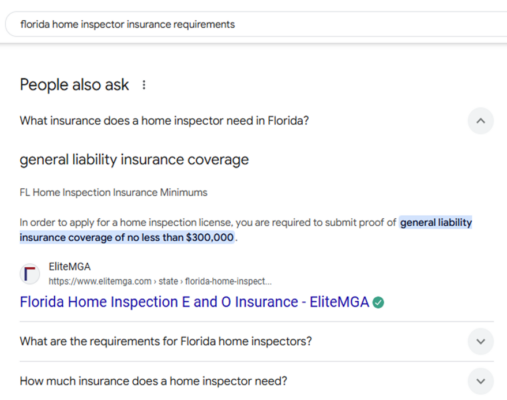
- Clear and Concise Language: Present information in a clear, concise, and easy-to-understand format. Use bullet points, numbered lists, and short paragraphs to improve readability.
- Structured Data: Implement schema markup to help search engines understand the context and structure of your content. This can significantly increase your chances of appearing in featured snippets.
- Focus on Authority and Trust: Build trust and authority by creating high-quality, original content written by experts that is consistently updated and maintained promoting backlinking opportunities.
Technical SEO Foundations
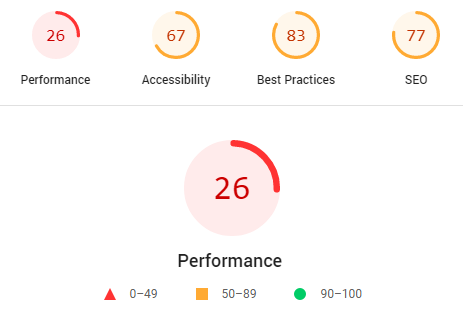 |
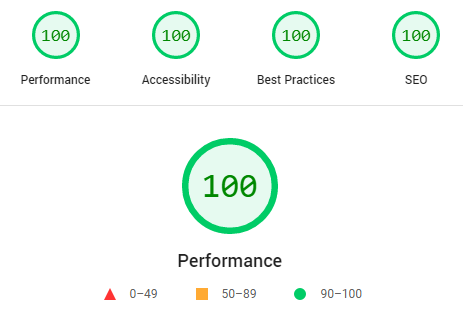 |
A strong technical foundation is crucial for AI optimization. This includes:
- Fast Page Speed: Ensure your website loads quickly on all devices. Minimizing page load times to improve AI crawling efficiency and user experience.
- Site Architecture: Clear and logical website structure to facilitate easy navigation by AI crawlers. Proper internal linking guides the AI crawler through relevant content.
- Crawling and Indexing: Submitting a comprehensive sitemap to search engines to ensure all pages are discovered. Implementing robots.txt to control which pages AI can access. Regularly monitoring for crawl errors.
- Mobile-First Optimization: Optimize your website for mobile devices, as the majority of searches are now conducted on smartphones.
- Schema Markup: Implementing structured data to provide additional context about your content for AI interpretation.
- Secure Website: Use HTTPS to encrypt your website and protect user data.
Content is Still King (But It’s Evolved)
While AI plays a significant role, content remains the cornerstone of successful SEO. Focus on creating valuable, informative, and engaging content that resonates with your target audience.
- Long-Form Content: In-depth, comprehensive content often performs well in AI-powered search results.
- Visual Content: Incorporate images, videos, and infographics to enhance user experience and improve engagement.
- User-Generated Content: Encourage user reviews and testimonials to build social proof and improve local search rankings.
Guide the User Search Journey
AI-powered search results, often featuring prominent summaries and direct answers, are becoming increasingly prevalent. This shift has led to a significant increase in “zero-click searches,” where users find the information they need within these AI-generated summaries and don’t click through to websites. This changes how users interact with search results, often leading them to refine their initial queries or explore related topics directly within the search interface. Their journey to completing an action often involves multiple searches, each building
 |
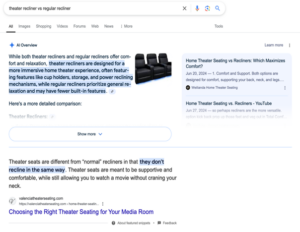 |
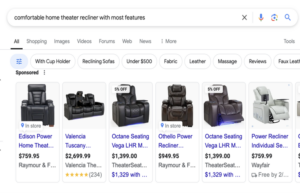 |
To address this evolving search behavior, focus on creating content that not only answers the initial user query but also anticipates and answers their subsequent questions. This “people also ask” approach guides users deeper into your content and increases the likelihood of engagement.
Consider that users might start with a broad query and then progressively narrow it down as they learn more. They may also jump between different facets of a topic, seeking specific details or alternative perspectives. To support this user search journey:
- Anticipate follow-up questions: Use structured data to connect related content.
- Optimize for long-tail keywords: Target specific phrases.
- Create content clusters: Interlink content for deeper engagement.
- Provide clear calls to action: Guide users at each stage.
By understanding these stages, you can create content that meets evolving user needs, driving engagement and conversions.
The Impact of AI on E-commerce SEO
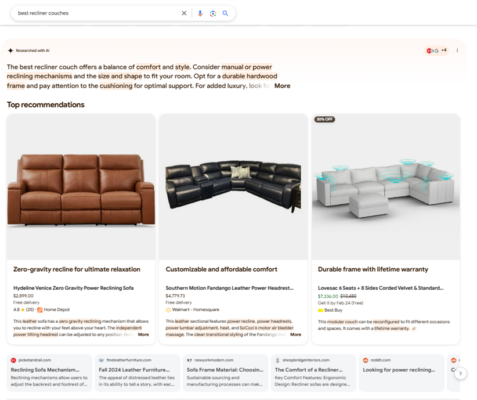
For e-commerce businesses, the impact of AI on search results is particularly significant. AI is revolutionizing how consumers shop online. Search engines now leverage AI to understand user intent and deliver highly relevant product results. This means that product pages must be optimized for AI-powered search to ensure visibility and drive conversions.
Key considerations for e-commerce businesses include:
- Product Feed Optimization: Maintaining your merchant center and your product feed and feeds, in general, is vitally important for commerce in the AI space. Accurate and comprehensive product feeds are crucial for appearing in AI-powered shopping results. Ensure product data is accurate, up-to-date, and includes all relevant attributes (price, availability, size, color, etc.).
- Rich Product Descriptions: Go beyond basic product descriptions. Utilize AI-powered tools to generate compelling and informative product descriptions that address common customer questions and highlight unique selling propositions.
- High-Quality Product Images: Invest in high-resolution, professional-quality product images from multiple angles. Utilize AI-powered image optimization tools to improve image loading speed and enhance the overall user experience.
- 7887Leverage AI-Powered Personalization: Utilize AI-powered tools to personalize the shopping experience for individual customers. This can include personalized product recommendations, targeted ads, and customized offers.
By embracing these strategies, e-commerce businesses can leverage the power of AI to enhance their online visibility, improve customer engagement, and drive sales growth.
Partnering with Boomtown: Guide to Search Success
Navigating the complexities of AI-powered search can be challenging. At Boomtown Internet Group, we possess the expertise and experience to help you adapt your SEO strategy to the evolving search landscape. Our team of experts will:
- Conduct a comprehensive AI SEO audit to identify areas for improvement.
- Develop and implement a customized AI SEO strategy tailored to your specific business goals.
- Create high-quality, AI-optimized content that resonates with your target audience.
- Monitor and analyze your results to ensure your SEO strategy is delivering optimal results.
By partnering with Boomtown Internet Group, you can gain a competitive edge in the evolving world of search and achieve sustainable growth in the digital age.


